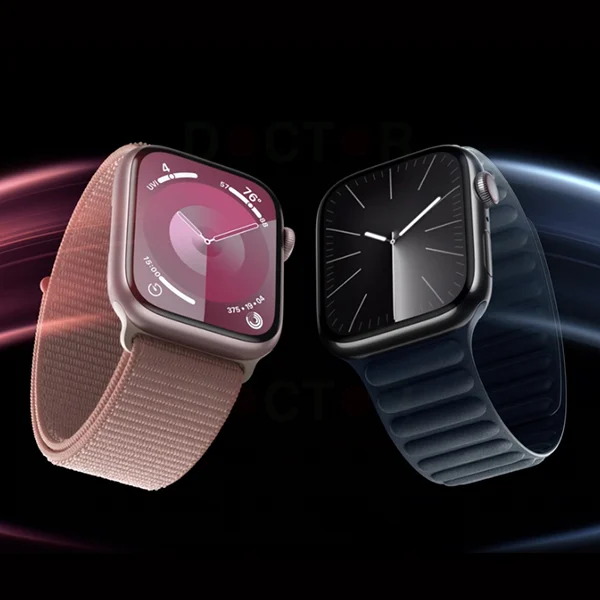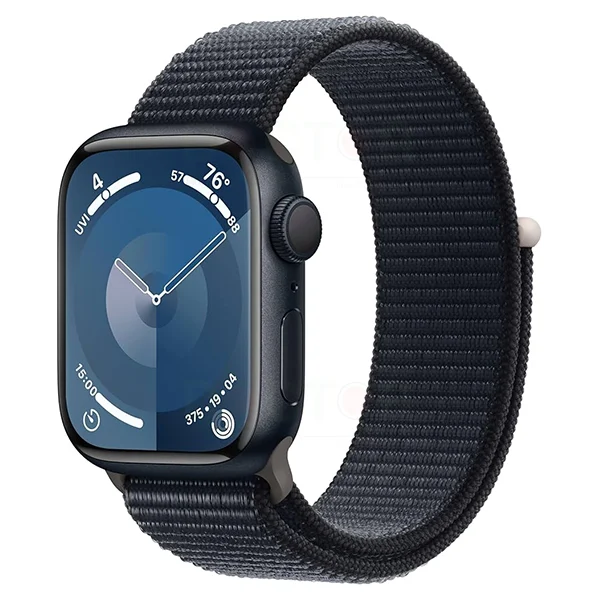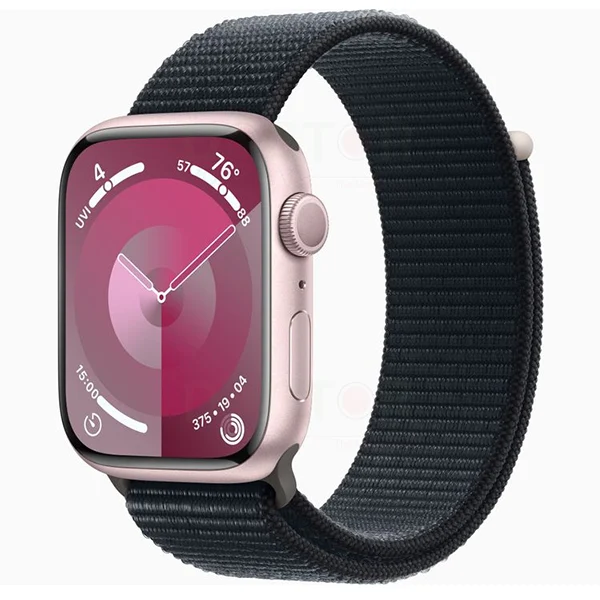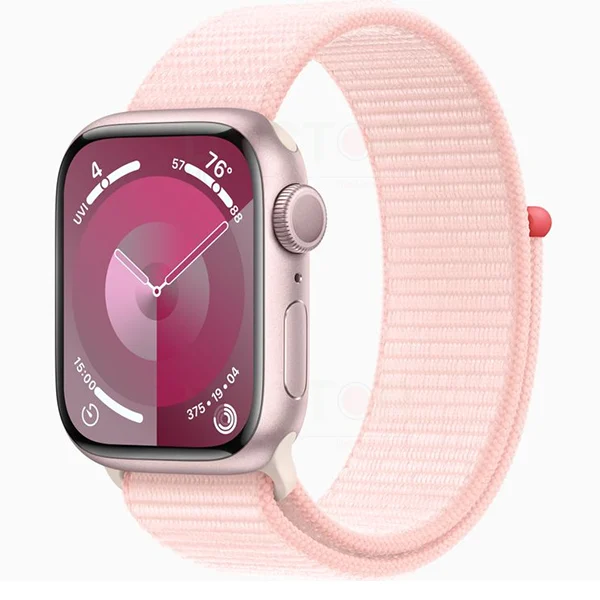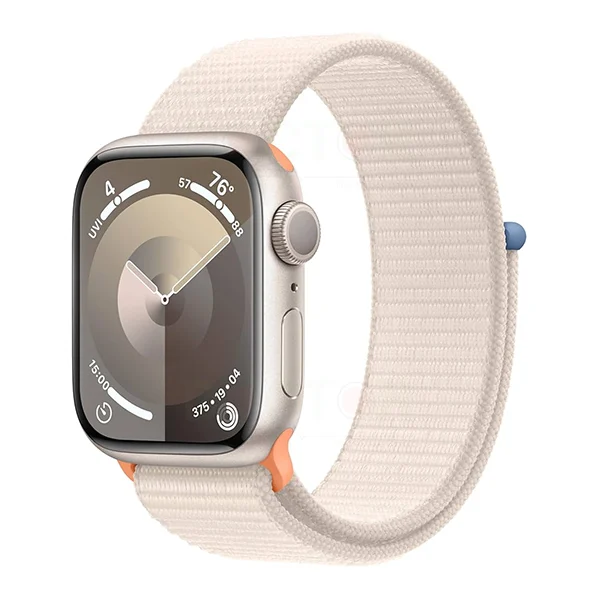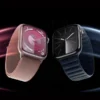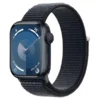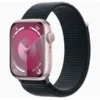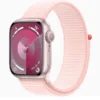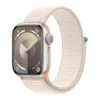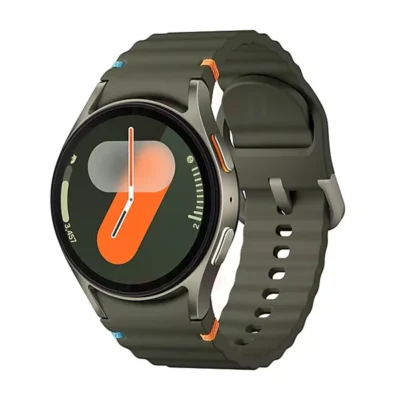Product details
Apple Watch Series 9 45mm
The Apple Watch Series 9 models feature the same stronger front crystal component first introduced with the Series 7, which is more resistant to cracking than prior Apple Watch models.
The aluminum Apple Watch models feature Ion-X glass to protect the display, while the stainless steel and titanium models use sapphire crystal glass. Sapphire crystal glass offers better scratch resistance than Ion-X glass because it is a harder material, which means the models with sapphire crystal models are more resistant to scratching and everyday wear.
All Apple Watch Series 9 models feature IP6X dust resistance for use in environments like the beach or the desert, and they offer WR50 water resistance, rated for immersion in water as deep as 50 meters thanks to seals and adhesives. The speaker, which needs air to produce sound, is the only point of ingress and has been designed to expel water using sound vibrations after exposure to moisture

Because it is rated for 50m immersion, the Apple Watch can be used when swimming in the ocean or in a pool. It is only suited to shallow water activities, and can’t be used for scuba diving, waterskiing, showering, or other activities that involve high-velocity water or deep submersion. For these water activities.
Apple’s Apple Watch warranty does not cover water damage, so it is best to exercise caution when exposing the device to water.
S9 Chip
Apple designed a new S9 System-in-Package (SiP) for the Apple Watch Series 9, and it is the most powerful watch chip yet. The dual-core CPU has 5.6 billion transistors, 60 percent more than the S8 chip, plus it includes a four-core Neural Engine that is able to process machine learning tasks up to twice as fast.
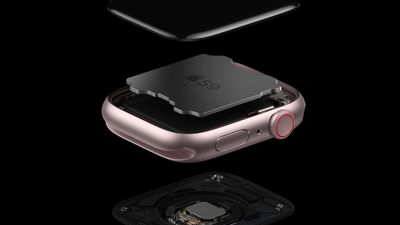
Double Tap Gesture
The S9 chip enables a Double Tap gesture that you can use to control the Apple Watch. When you double tap your index finger and thumb, the sensors in the Apple Watch detect the motion and can activate what’s on the display, allowing you to do things like answer a call, end a call, open a notification, play or pause music, start or stop a timer, check your Smart Stack, and more.
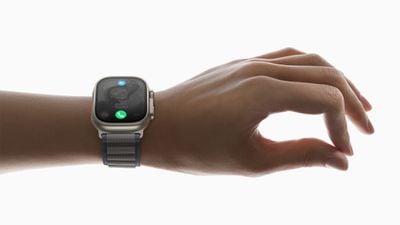
On-Device Siri
Siri requests processed on-device are faster and more secure with the S9 chip, and Siri dictation is up to 25 percent more accurate.
Later this year, Siri will be able to answer questions about health data, such as how well you slept or what your heart rate was during a workout. Siri will also be able to log information such as weight, water consumed, and other metrics you might want to track.
Storage
The Apple Watch Series 9 has 64GB of storage, up from 32GB in the prior-generation model.
Always-On Display
The Apple Watch Series 9 features the same display as the Series 8, with 1.7mm borders and a contour that causes it to bend slightly around the top edges of the glass. The maximum display brightness has been improved and it now goes up to 2000 nits so it’s easier to see the screen in the sun. The display is also able to dim down to 1 nit, which is ideal for dark rooms like movie theaters.
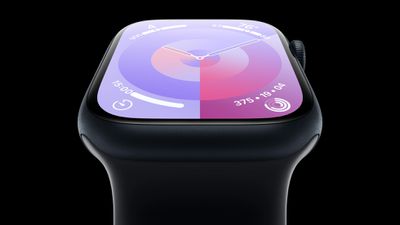
The watch uses an OLED ultra low power temperature poly-silicon and oxide display (LTPO) to enable Always-On functionality, which allows the watch face, complications, and other information to be continually visible.
The display dims when the wrist is down in order to preserve battery life, but key features like watch hands remain illuminated all the time. Touching the watch face or raising the wrist brings the display back to full brightness, and to minimize battery drain, Apple has optimized watch faces for the feature. The Apple Watch’s display also has a variable refresh rate that drops from 60Hz to as low as 1Hz when the watch is inactive.
Health Features
The Apple Watch Series 9 has a third-generation optical heart rate sensor that calculates metrics like calorie burn, resting heart rate, and a heart rate that’s too high, and the electrical heart rate sensor can be used for taking electrocardiograms, while LEDs and infrared light enable blood oxygen monitoring. A built-in accelerometer and gyroscope enable other important health-related features such as fall detection.
The Apple Watch can detect a low heart rate, a high heart rate, and an abnormal heart rate, monitoring for health problems like atrial fibrillation and sending notifications when anomalies are detected.
Blood Oxygen Monitoring
Sensors on the back of the Apple Watch enable the blood oxygen monitoring feature available in the Apple Watch Series 9. Blood oxygen saturation in a healthy individual is around 95 to 100 percent, and when the percentage of oxygen in the blood drops below that, it can be indicative of a serious health issue that needs immediate attention.
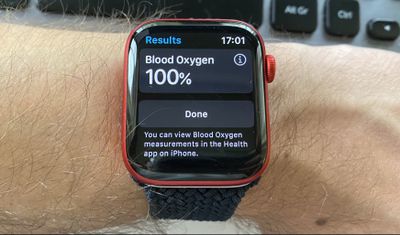
Green, red, and infrared LEDs shine light onto the blood vessels in the wrist, with photodiodes measuring the amount of light reflected back. Apple’s algorithms then calculate the color of the blood, which is an indication of how much oxygen is present. The Series 9 can measure blood oxygen between 70 and 100 percent.
ECGs
Electrodes in the back of the Apple Watch and the Digital Crown work together to allow users to take single-lead electrocardiograms. An ECG measures the electrical activity of the heart and can be used to diagnose health conditions by a doctor.
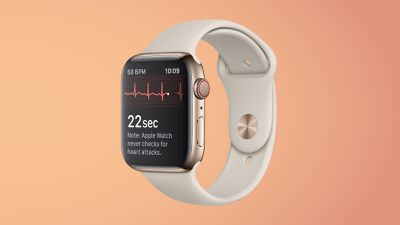
ECGs are captured by holding a finger on the Digital Crown of the Apple Watch and can detect a sinus rhythm (normal), an abnormal result, or, sometimes, an inconclusive result that should be shared with a doctor. The ECG is able to detect atrial fibrillation at heart rates above 100 beats per minute.
A single-lead ECG like the Apple Watch means there are two points of contact measuring the electrical sensations of your heart. Clinical electrocardiograms done by your doctor can have six to 12 leads for greater accuracy, but the Apple Watch offers the convenience of being able to take an ECG anytime anywhere in approximately 30 seconds.
Sleep Tracking
The Apple Watch Series 9 models can be worn at night to keep track of your sleep. It monitors when you’re awake and when you’re asleep, letting you know how much time you spent in the REM, Core, and Deep sleep stages. Sleep tracking also lets you know how often you’ve woken up in the night and for how long.
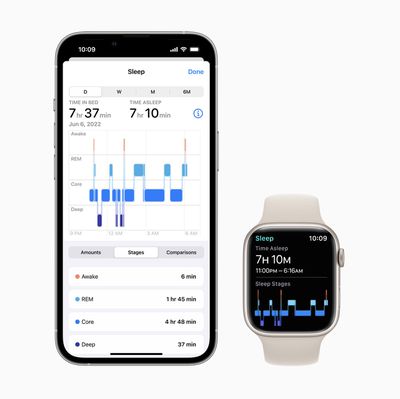
Crash Detection
Updated motion sensors and an advanced sensor-fusion algorithm allow the Apple Watch Series 9 to detect a severe car crash and alert emergency services. After a crash is detected, the Apple Watch checks in with the user and then dial emergency services after a 10-second period with no response. It also alerts emergency contacts.
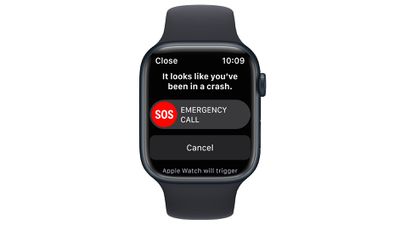
Temperature Measurements
There are two temperature sensors in the Series 9, including one that measures the temperature at the wrist and one that measures the ambient temperature in the air to cut down on outside bias.
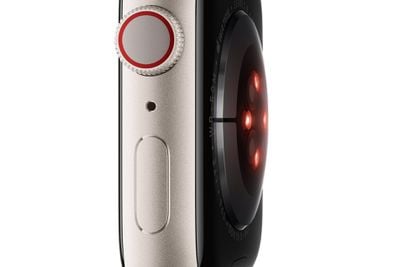
The temperature sensor is primarily designed for women’s health. It is able to take temperature readings every five seconds when the wearer is asleep, aggregating the data in the Health app. Temperature fluctuations can provide data on overall health, but it is also useful for fertility planning.
The Apple Watch Series 9 is able to deliver retrospective ovulation estimates, letting users know when they might have ovulated for better cycle tracking. Apple says temperature sensing also improves period predictions for those who menstruate.
Battery Life
Apple advertises “all-day” 18-hour battery life for the Apple Watch Series 9 models, which can be increased to up to 36 hours with Low Power Mode.
Apple bases “all-day” battery life estimates on 90 time checks, 90 notifications, 45 minutes of app use, and a 60-minute workout with music playback via Bluetooth. For LTE models, Apple assumes four hours of LTE connection and 14 hours of connection to an iPhone. In some situations, the Apple Watch drains faster, such as during calls or workouts.
The Apple Watch Series 9 can fast charge with Apple’s Magnetic Fast Charger USB-C Cable and an 18W or higher power adapter. Just eight minutes of charging can provide up to eight hours of sleep tracking.
Connectivity
Apple Watch Series 9 models are equipped with an Apple-designed W3 chip, and there are two variants available: GPS and GPS + Cellular. GPS + Cellular models have a built-in LTE chip and can connect to LTE without an iPhone, while GPS models are Wi-Fi only.
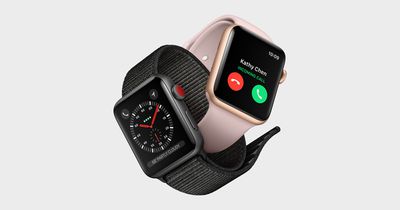
LTE connectivity has been available since the Apple Watch Series 3, and with an LTE connection, the Apple Watch is untethered from the iPhone and does not require an iPhone or known Wi-Fi network for an internet connection.
The Apple Watch is still not entirely independent from the iPhone, because LTE connectivity through a carrier requires an Apple Watch and an iPhone 6s or later to share a cellular plan with the same carrier. The Apple Watch also does not have the battery capacity to be used constantly without an iPhone nearby.
U2 Chip
The Apple Watch Series 9 has a new second-generation Ultra Wideband chip (UWB), which is also in the iPhone 15 models. Like the U1, the U2 enables highly accurate short-range wireless that Apple says supports new experiences like Car Keys, the feature that allows an Apple Watch (or iPhone) to be used in lieu of a physical car key.
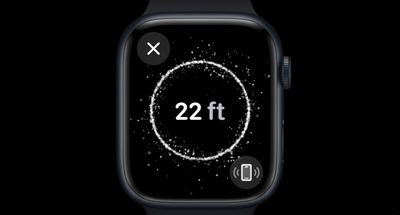
The UWB chip also allows the Apple Watch to track AirTags, and it allows an Apple Watch to use Precision Finding to track down a misplaced iPhone, even if it is in the same room. With the HomePod, when an Apple Watch gets within 4 meters of a HomePod that is playing audio, the Apple Watch Series 9 will show a Now Playing interface for media control. If nothing is playing on the HomePod, the Apple Watch will show media suggestions at the top of the Smart Stack.
Emergency SOS
LTE connectivity enables an international Emergency SOS feature that was first released with the Series 5. With Emergency SOS, the Apple Watch can make international calls to emergency services regardless of where the device was originally purchased or if there’s an active cellular plan.
That means if you’re traveling to another country and are injured or in a situation where you need help, you can activate the SOS feature on the Apple Watch by holding down the side button to automatically get in touch with that country’s emergency services. International emergency calling works with the Apple Watch’s fall detection feature, so if that’s enabled, it automatically places an emergency call if the watch senses the user has taken a hard fall and remains motionless afterward.
WiFi, Bluetooth and GPS
Apple Watch Series 9 supports 2.4GHz and 5GHz 802.11b/g/n Wi-Fi, and Bluetooth 5.3, which offers longer range, faster speeds, larger broadcast message capacity, and better interoperability with other wireless technologies.
GPS has been included in the Apple Watch since the Series 2, and all Series 9 models, LTE and non-LTE, feature a GPS chip that allows the Apple Watch to determine its position without needing to be near an iPhone.
With GPS, the Apple Watch is able to keep tabs on speed, distance, and route when you’re walking, running, hiking, or biking, providing more insight into your fitness activities. GPS, GLONASS, Galileo, and QZSS systems are supported for positioning technology across multiple countries.

